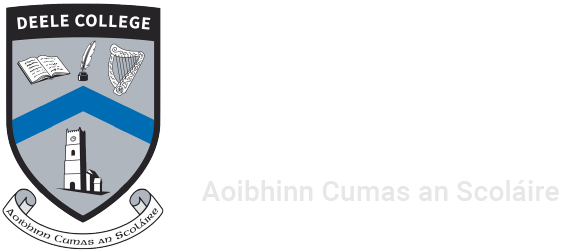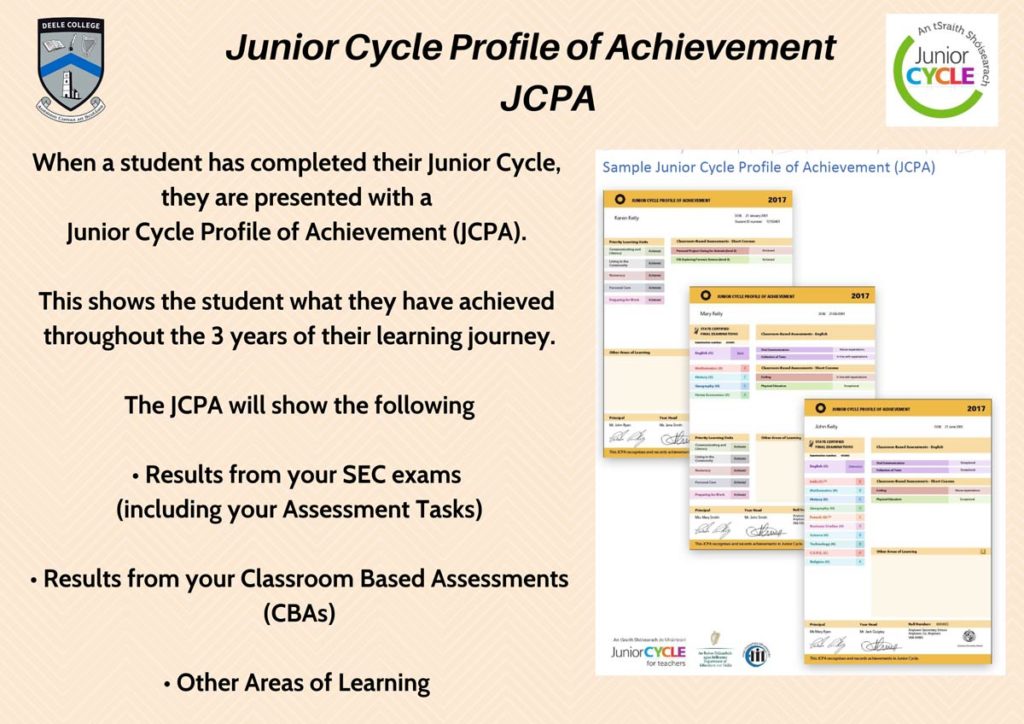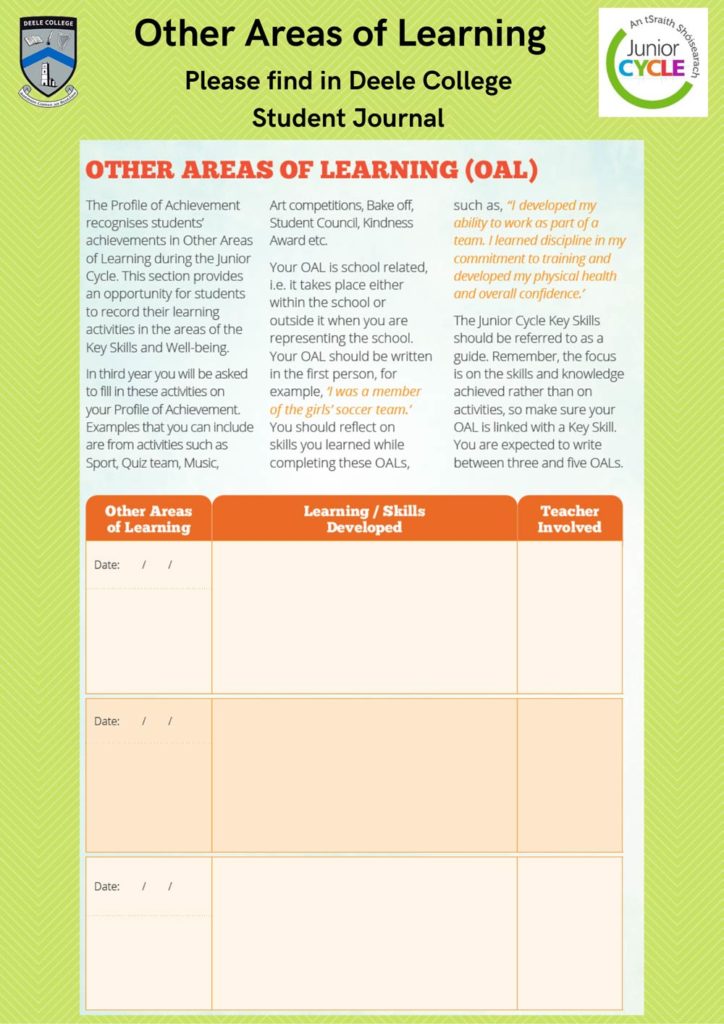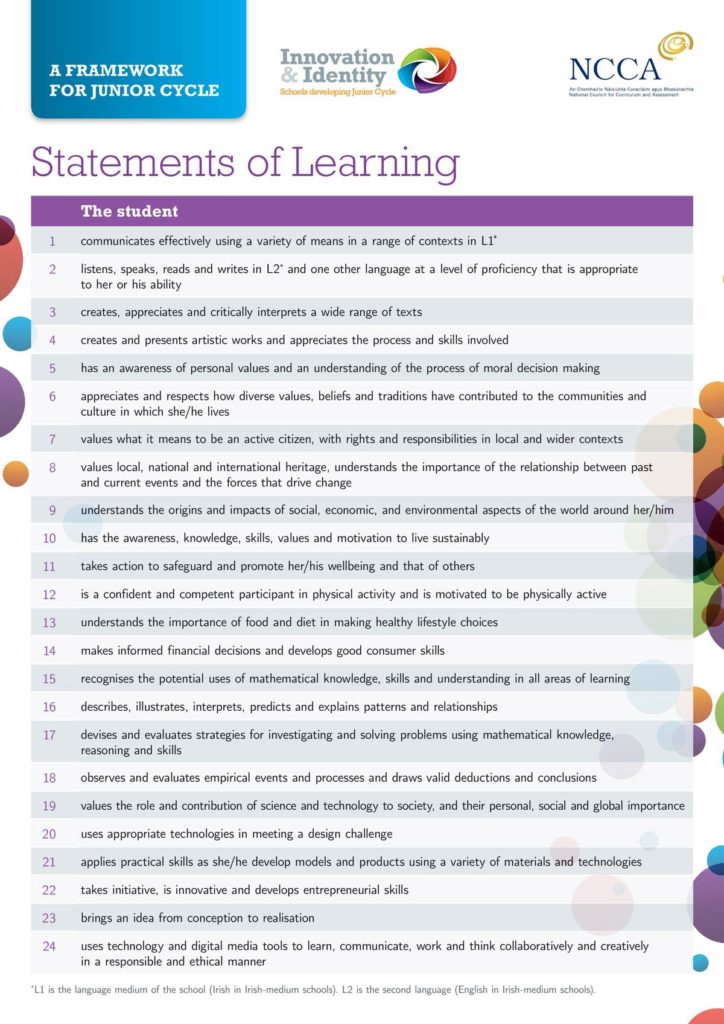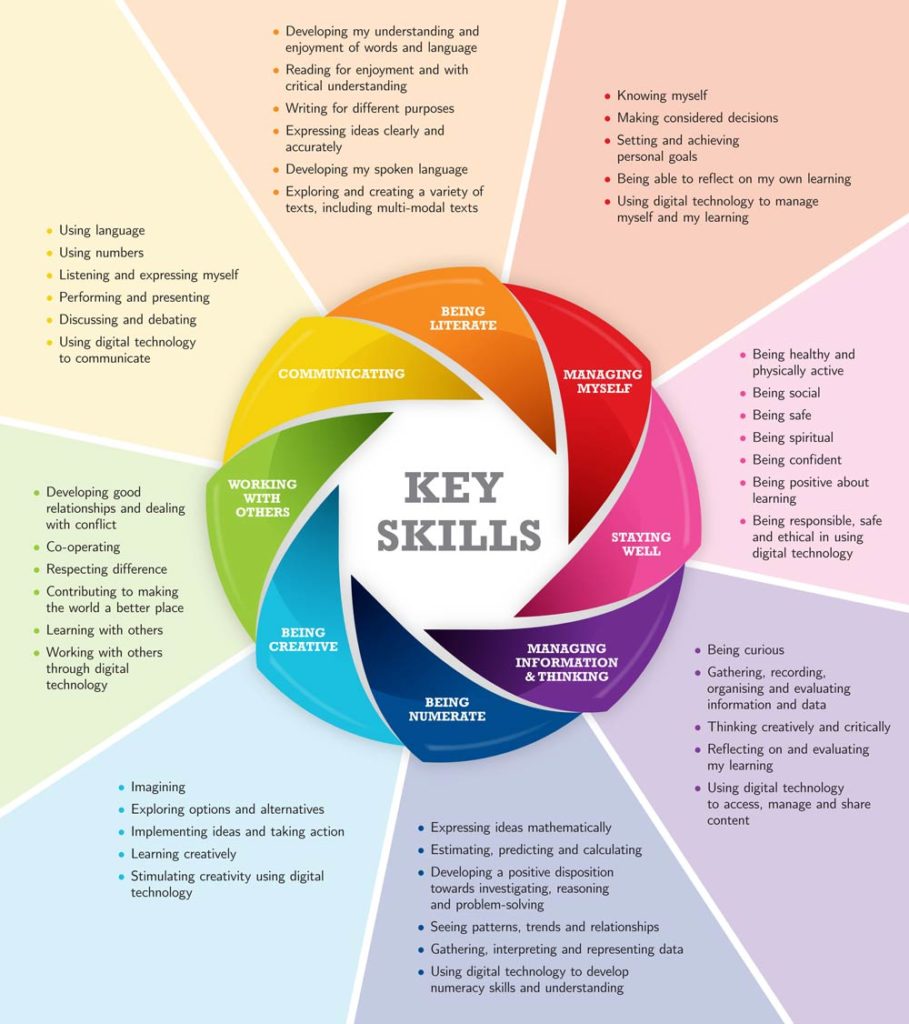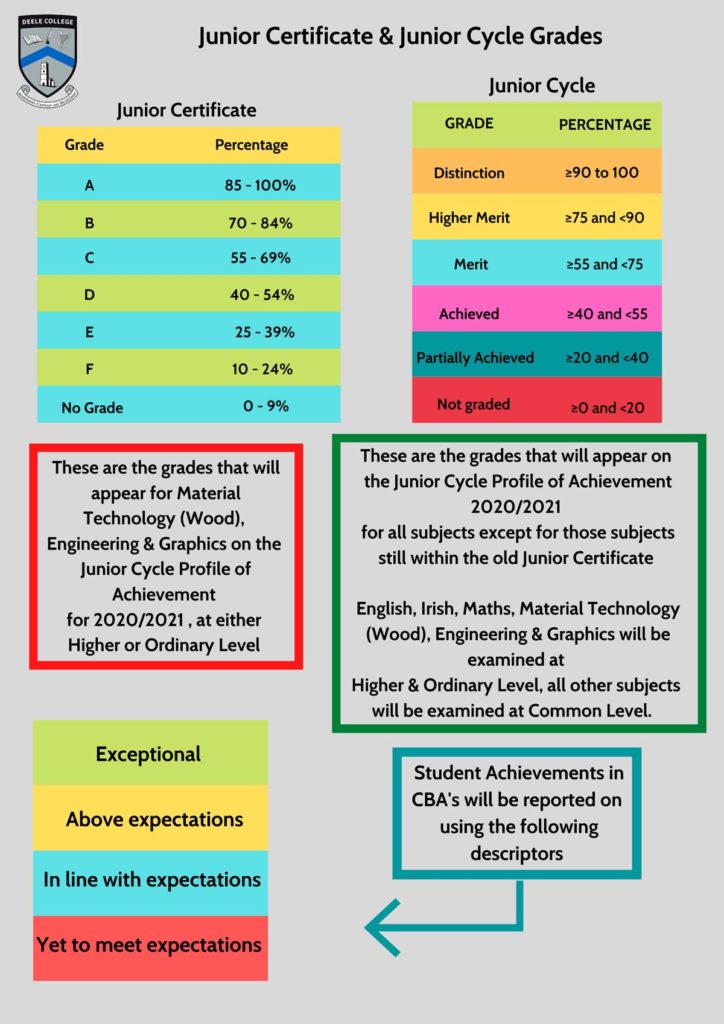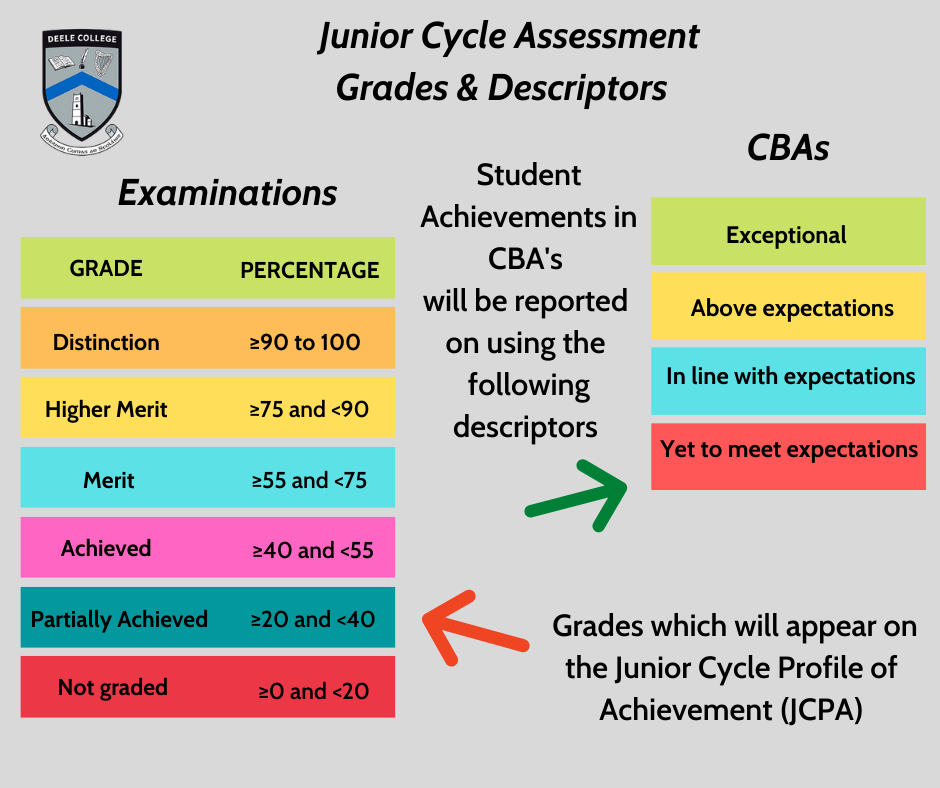The new junior cycle places the student at the centre of the learning process it will allow for new ways to learn and offer a broad range of skills to be assessed.
Purpose of Education in Junior Cycle:
- Help students become better learners and develop a love of learning.
- Provide a solid foundation for further study.
- To develop skills for learning and life.
- To support learning through improved reporting to both students and parents.
- There are six key skills that underpin the framework for Junior Cycle. These will inform teacher planning, as well as the development and implementation of, junior cycle programmes in school. These key skills will permeate across the entire curriculum.
Table of Contents
The Junior Cycle Curriculum
Deele College Junior Cycle Core Subjects & Option Subjects
- All Junior Cycle students study English, Irish, Maths, Science, History, Geography, SPHE, CSPE, Religion, Wellbeing and PE.
- Students in 1st Year then select 3 option subjects to study for the remainder of their Junior Cycle programme.
- In 2nd year Spanish is added to the option subjects and the students then select 3 subjects.
- English
- Irish – (Students exempted from Irish get extra support with literacy and numeracy)
- Maths
- Science
- History
- Geography
- SPHE
- CSPE
- Religion
- PE
- Wellbeing
- Visual Art
- Home Economics
- Engineering
- Music
- Spanish (becomes an option subject in 2nd year)
- Graphics
- Wood Technology
- Business Studies
- Coding/Digital Literacy
The Junior Certificate Schools Programme

The JCSP is a national programme sponsored by the Department of Education and Skills (DES) and the National Council for Curriculum and Assessment (NCCA). It is based on the concept that all young people are capable of achieving real success in school and that they can have a positive experience of education, if the conditions are favourable. The JCSP provides students with an opportunity for success in school and reward that success with an official record of their achievements, validated by the DES. All students who are part of the JCSP must sit the Junior Certificate like their peers.
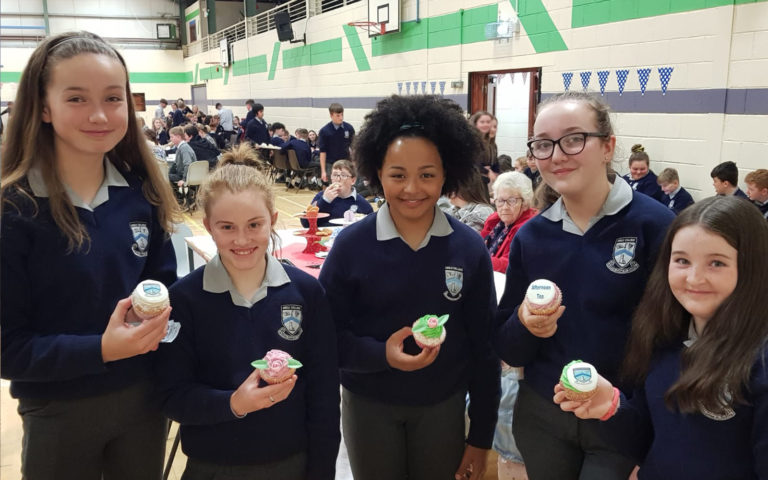
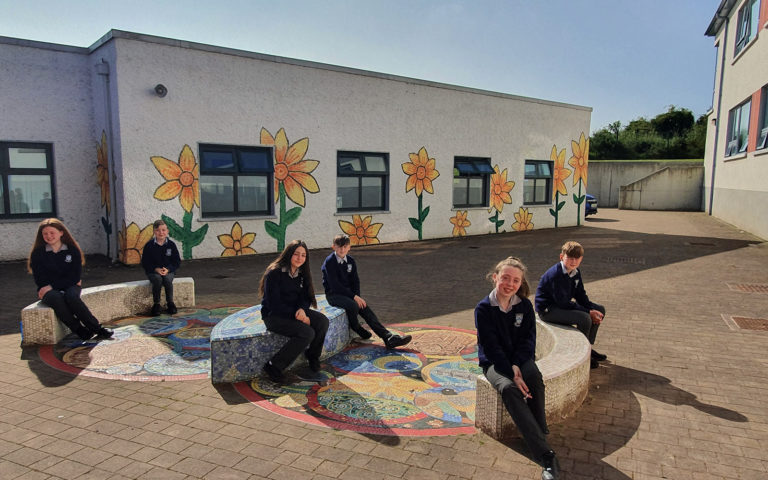
Junior Cycle Profile of Achievement JCPA
When a student has completed their Junior Cycle, they are presented with a Junior Cycle Profile of Achievement (JCPA). This shows the student what they have achieved throughout the 3 years of their learning journey.
The JCPA will show the following
- Results from your SEC exams (including your Assessment Tasks)
- Results from your Classroom Based Assessments (CBAs)
- Other Areas of Learning
Other Areas of Learning
Students will have the opportunity to engage with a range of other learning experiences within the Junior Cycle Programme.
The Other Areas of Learning is school related, e.g. school sports team, choir, quiz, mini company etc.
The focus is on skills & knowledge, it should be linked with a Key Skill. Please see 8 Key Skills from Junior Cycle.
These OALS will appear on the student’s Junior Cycle Profile of Achievement.
Junior Cycle Assessment
Classroom Based Assessments & Assessment Tasks
In 2nd Year, students will complete CBA 1 in each of their exam subjects. In 3rd Year, students will complete CBA 2 and Assessment Task in each of their exam subjects.
Classroom Based Assessment (CBA)
Each student will complete 2 CBAs in each subject they are studying.
- CBA 1 will be completed in 2nd Year
- CBA 2 will be completed in 3rd Year
- They are organised by each subject teacher
- They are completed in a block of 3-4 weeks in class
Assessment Task (AT)
When a student has completed CBA 2 in 3rd Year, they will be required to complete an Assessment Task (AT).
- The AT is completed over 2 lessons in class under the supervision of the teacher.
- It asks the students questions to reflect on the skills, knowledge & understanding they developed & experienced whilst preparing for & undertaking this CBA.
- The Assessment Task is then sent to State Examinations Commission (SEC) to be marked.
- It will account for up to 10% of the state-certified examination and will be incorporated into the grade that a student receives for their final SEC examination.
Junior Cycle Content Creation
With the implementation of the Junior Cycle, the ‘Content Creation Group’ of the Donegal ETB have created units of work for the English, Irish and Science subject specifications. This animation describes how this initiative began, developed and the direction where it is hoped to go.
